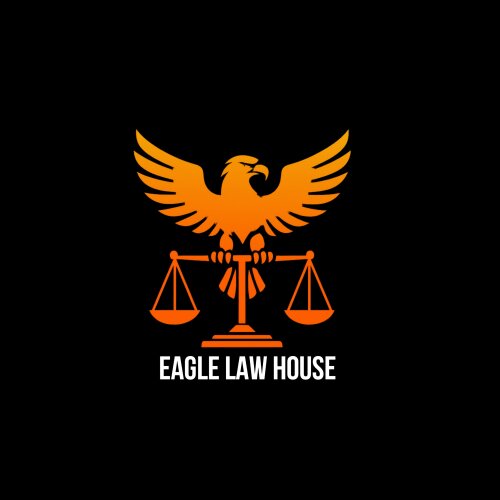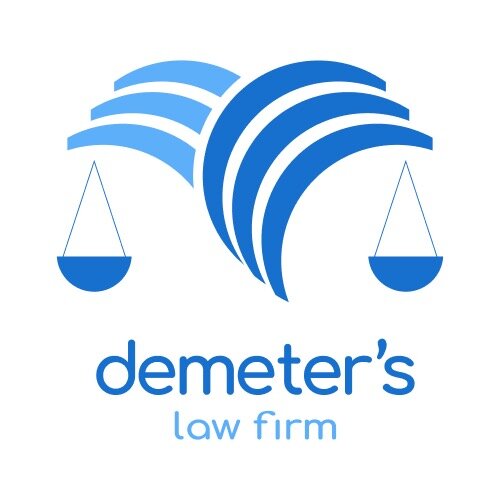Best Divorce & Separation Lawyers in Abuja
Share your needs with us, get contacted by law firms.
Free. Takes 2 min.
Free Guide to Hiring a Family Lawyer
List of the best lawyers in Abuja, Nigeria
Nigeria Divorce & Separation Legal Questions answered by Lawyers
Browse our 29 legal questions about Divorce & Separation in Nigeria and read the lawyer answers, or ask your own questions for free.
- Can a woman seek divorce from her husband if he cheated and got another lady to bear a child for him?
- The marriage happened in 2019. No court wedding, just a church and a traditional wedding. Also, no child throughout the wedding period. Husband got another lady pregnant and bore a child for him while still married. Is this enough grounds to dissolve the marriage, and what's the best approach if... Read more →
-
Lawyer answer by Papireddy Associates
Yes, a woman can seek dissolution of her marriage if her husband cheated and had a child with another woman while still married, as adultery is a recognized ground for divorce under Indian law, including for marriages performed traditionally or...
Read full answer - Is 2 to 3 months enough for a divorce to process
- Can I file for a divorce on grounds of fertility negligence, and my husband says he doesn't want to have children with me? Bullying by his brother? Accusations of his brother's child dying because of my prayers? Saying he was lured into marrying me?
-
Lawyer answer by Guidance Law Firm
You can successfully sustain a divorce suit on the grounds you stated. However, 2 to 3 months is not enough for the divorce suit to be concluded in court. It will take at least six months for the divorce to...
Read full answer - How do I go about filling for a divorce
- It is obvious that the marriage is no longer working and both of us are exhausted trying to make it work. How do we go about it?
-
Lawyer answer by Solomon & Co.
Filing for divorce involves specific procedures depending on your personal law - mutual consent divorces are quicker, while contested cases require detailed grounds, evidence, and court hearings. The process includes filing a petition, possible counseling/mediation, and a final decree by...
Read full answer
About Divorce & Separation Law in Abuja, Nigeria
Divorce and separation laws in Abuja, Nigeria, fall under the Marriage Act and the Matrimonial Causes Act. These laws govern the conditions, procedures, and legal implications of ending a marital union. Divorce and separation are complex legal processes that may involve matters such as the division of property, child custody, and alimony. In Nigeria, marriages are recognized as either statutory or customary, and the type of marriage may affect the proceedings. Grounds for divorce under the Matrimonial Causes Act include adultery, abandonment, lack of support, and irreconcilable differences, among others.
Why You May Need a Lawyer
Engaging a lawyer in divorce and separation cases is recommended because these proceedings can be legally intricate. Common situations where legal help is required include:
- Understanding the legal grounds for divorce under Nigerian law.
- Navigating child custody and support arrangements.
- Division of property and financial assets.
- Legal representation in court proceedings.
- Drafting of divorce agreements and subsequent legal documentation.
An experienced lawyer can help mitigate emotional stress and ensure your legal rights are adequately protected throughout the process.
Local Laws Overview
Divorce and separation laws in Abuja, Nigeria, have several key aspects:
- The Matrimonial Causes Act is the primary legislation governing divorce, providing legal grounds and procedures.
- Statutory marriages require legal proceedings for a divorce, while customary marriages may have different provisions.
- Child custody is determined based on the child's best interest, with the courts considering factors such as age, health, and emotional needs.
- Division of marital property is guided by principles of fairness, rather than an equal split.
- Alimony or spousal support may be awarded based on each party’s financial capacity and contribution to the marriage.
Frequently Asked Questions
What are the legal grounds for divorce in Nigeria?
Legal grounds for divorce include adultery, unreasonable behavior, desertion for at least one year, living apart for a prolonged period, and irretrievable breakdown of the marriage.
How long does the divorce process take in Abuja?
The duration varies based on the complexity of the case, whether it's contested, and the efficiency of the court system. On average, it may take several months to years.
What is the difference between separation and divorce?
Separation means living apart without legally ending the marriage, while divorce legally dissolves the marriage.
Can I file for divorce without a lawyer?
While you can file without legal representation, it's advisable to seek legal counsel to navigate the legal complexities effectively.
How is child custody determined?
Child custody is determined based on the best interest of the child, considering factors like the child's needs, parental capability, and living arrangements.
What is the role of customary law in marriage and divorce?
Customary law governs marriages recognized under specific customs and traditions, which can affect the divorce process, including negotiations outside court.
Are prenuptial agreements recognized in Nigerian courts?
While not explicitly recognized, prenuptial agreements can be considered by the court during property division if deemed fair and reasonable.
What should I do if my spouse refuses to grant a divorce?
You can still proceed by petitioning the court based on the legal grounds for divorce. The court will handle the case accordingly.
Is mediation an option in divorce proceedings?
Yes, mediation is encouraged as a means to resolve disputes amicably and minimize conflict before opting for litigation.
What are the financial implications of divorce?
Financial implications can include legal fees, potential alimony, child support obligations, and division of assets and debts.
Additional Resources
Consider reaching out to the following resources for more information and assistance:
- Legal Aid Council of Nigeria: Provides free legal services to eligible individuals.
- Nigerian Bar Association: Can help connect you with certified family law practitioners.
- Federal Ministry of Women Affairs and Social Development: Offers resources related to family and child welfare.
Next Steps
If you require legal assistance in divorce and separation:
- Consult with a licensed attorney specializing in family law to assess your situation and guide you through the legal process.
- Gather all relevant documents, such as marriage certificates, evidence of marital misconduct, financial records, and any agreements made with your spouse.
- Consider mediation or counseling services as initial steps to resolving disputes amicably.
Engaging with professional legal counsel is crucial to ensuring that your rights and interests are protected during the divorce or separation process.
Lawzana helps you find the best lawyers and law firms in Abuja through a curated and pre-screened list of qualified legal professionals. Our platform offers rankings and detailed profiles of attorneys and law firms, allowing you to compare based on practice areas, including Divorce & Separation, experience, and client feedback.
Each profile includes a description of the firm's areas of practice, client reviews, team members and partners, year of establishment, spoken languages, office locations, contact information, social media presence, and any published articles or resources. Most firms on our platform speak English and are experienced in both local and international legal matters.
Get a quote from top-rated law firms in Abuja, Nigeria — quickly, securely, and without unnecessary hassle.
Disclaimer:
The information provided on this page is for general informational purposes only and does not constitute legal advice. While we strive to ensure the accuracy and relevance of the content, legal information may change over time, and interpretations of the law can vary. You should always consult with a qualified legal professional for advice specific to your situation.
We disclaim all liability for actions taken or not taken based on the content of this page. If you believe any information is incorrect or outdated, please contact us, and we will review and update it where appropriate.

















